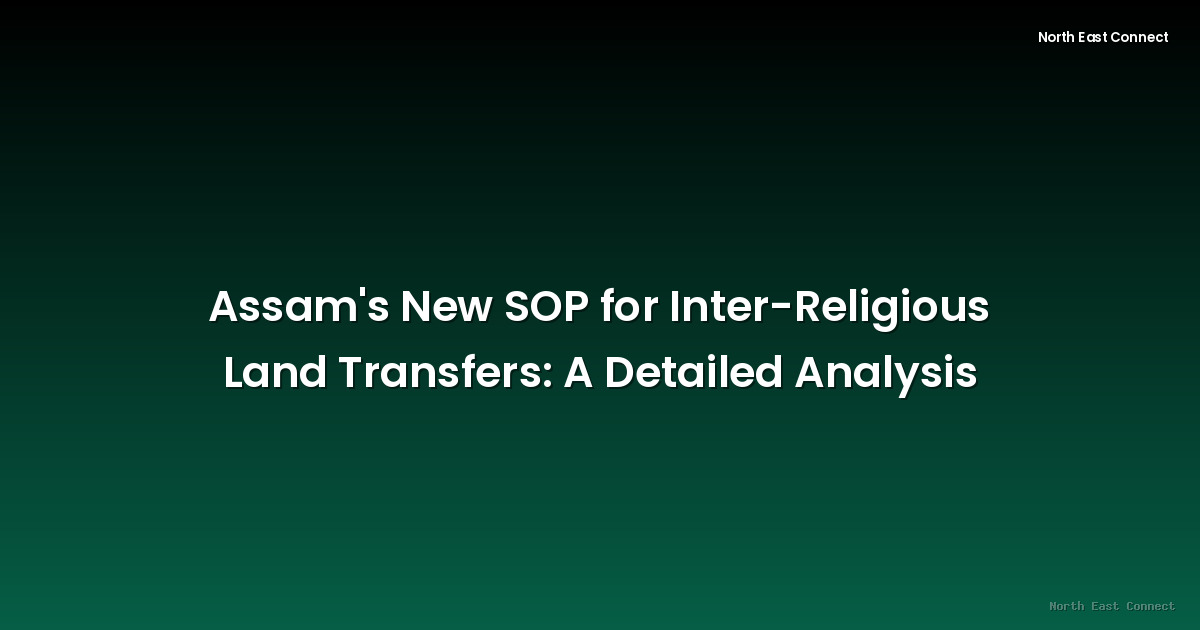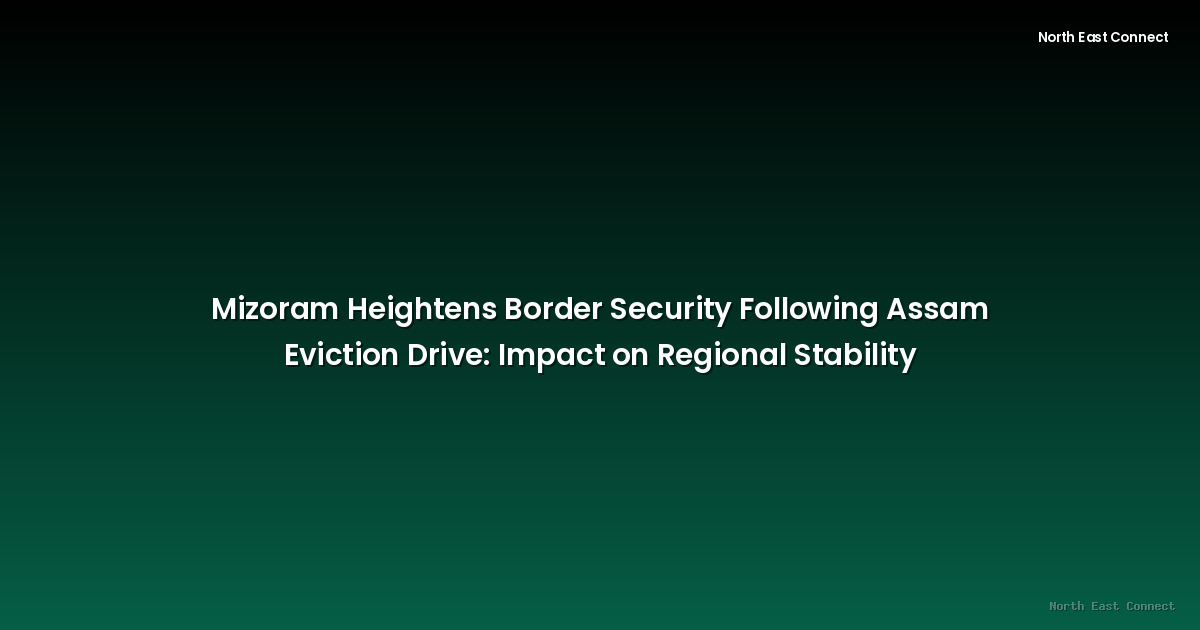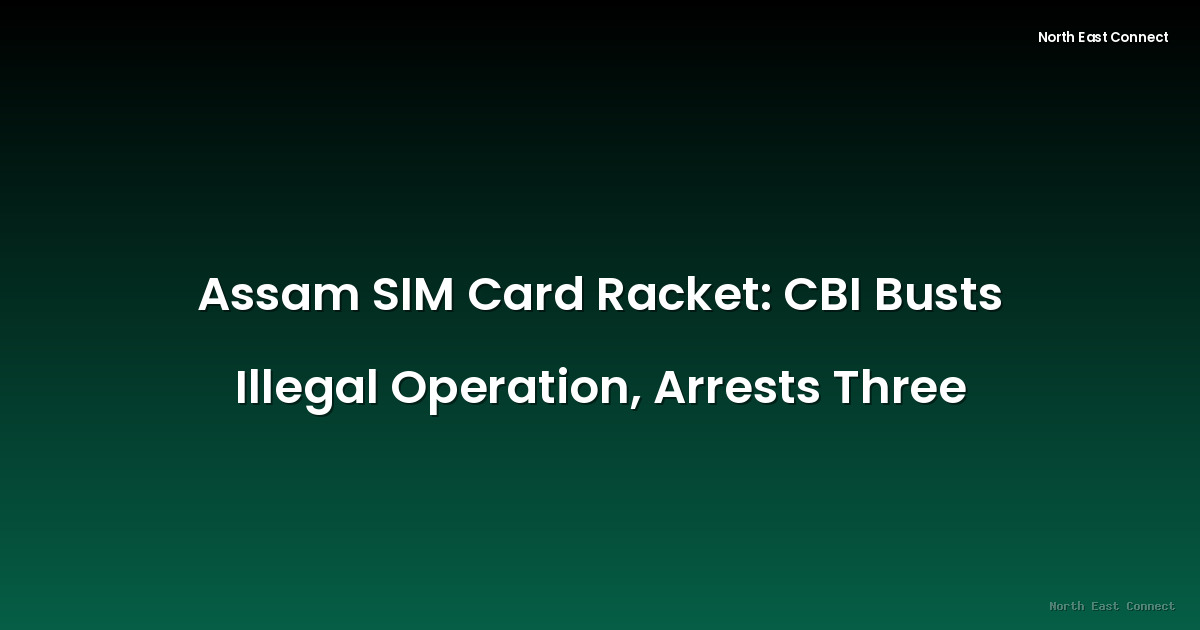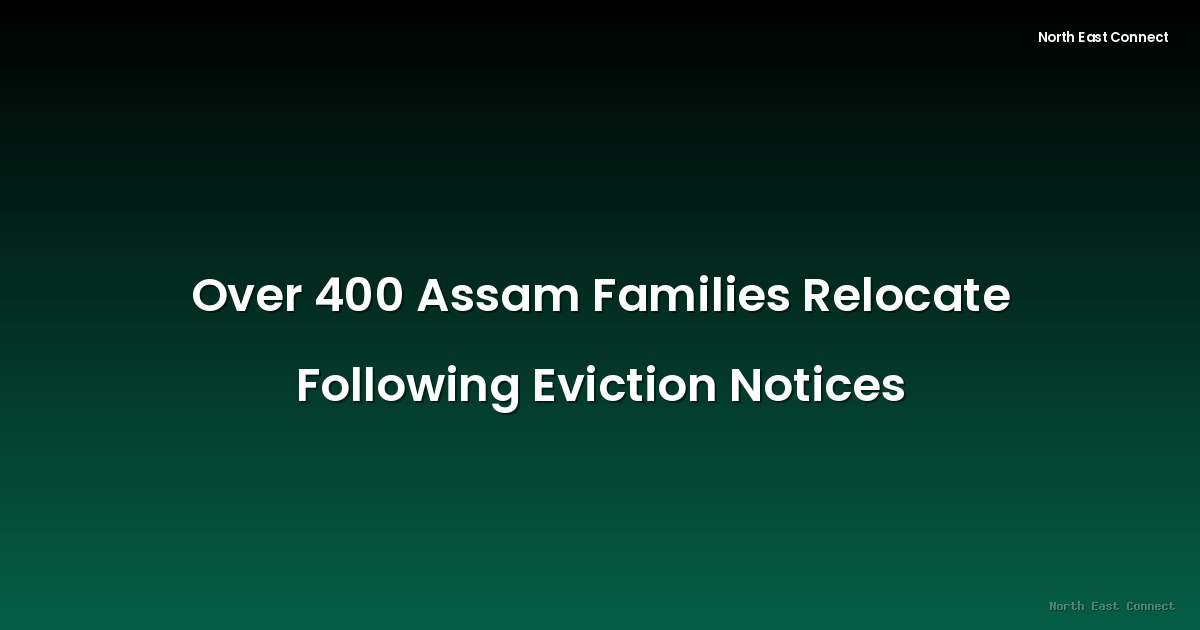2025-08-29 · News
Assam has taken a significant step in streamlining the process of inter-religious land transfers with the recent approval of a new Standard Operating Procedure (SOP) by the state government. This move follows years of debate and concerns surrounding land ownership and transactions involving individuals from different religious backgrounds. While the exact details of the SOP are yet to be publicly released in full, initial reports indicate a structured approach aimed at transparency and accountability.
The need for a clear SOP in this domain stems from the potential for disputes and legal challenges associated with inter-religious land transactions. Historically, such transfers have been fraught with complexities, often leading to protracted legal battles and social friction. The lack of a standardized process has created ambiguities, leaving room for misinterpretations and exploitation. The new SOP intends to address these concerns by providing a defined framework for verifying land titles, ensuring proper documentation, and facilitating smooth transfers.
The SOP is expected to incorporate measures for thorough background checks and verification of documents related to land ownership. This may include scrutiny of land records, identity verification of the parties involved, and potentially, involvement of relevant government agencies to ensure the legality and legitimacy of the transaction. By establishing a transparent process, the government aims to prevent fraudulent activities and protect the rights of both buyers and sellers.
While the primary objective is to regulate and simplify the process, the SOP's impact on various stakeholders will be closely observed. Real estate professionals, legal practitioners, and individuals involved in land transactions are likely to be affected. The new procedures could influence market dynamics and may lead to adjustments in the way land deals are conducted.
Furthermore, the long-term consequences of the SOP remain to be seen. Its effectiveness in preventing disputes and fostering harmonious inter-religious relations will depend on its implementation and enforcement. Public awareness and understanding of the new rules will be crucial for its successful implementation. Any ambiguities or shortcomings in the SOP's application could still lead to legal challenges and societal tensions. Therefore, ongoing monitoring and potential amendments may be required to ensure its efficacy and adaptability.
The introduction of this SOP represents a considerable effort by the Assam government to address a complex issue. Its success will ultimately be judged by its ability to ensure transparency, prevent fraud, and promote amicable inter-religious relations within the state's diverse population. Further information, including the complete SOP document, is awaited for a comprehensive understanding of its scope and practical implications. The government's commitment to its effective implementation will be key in determining its long-term success.







